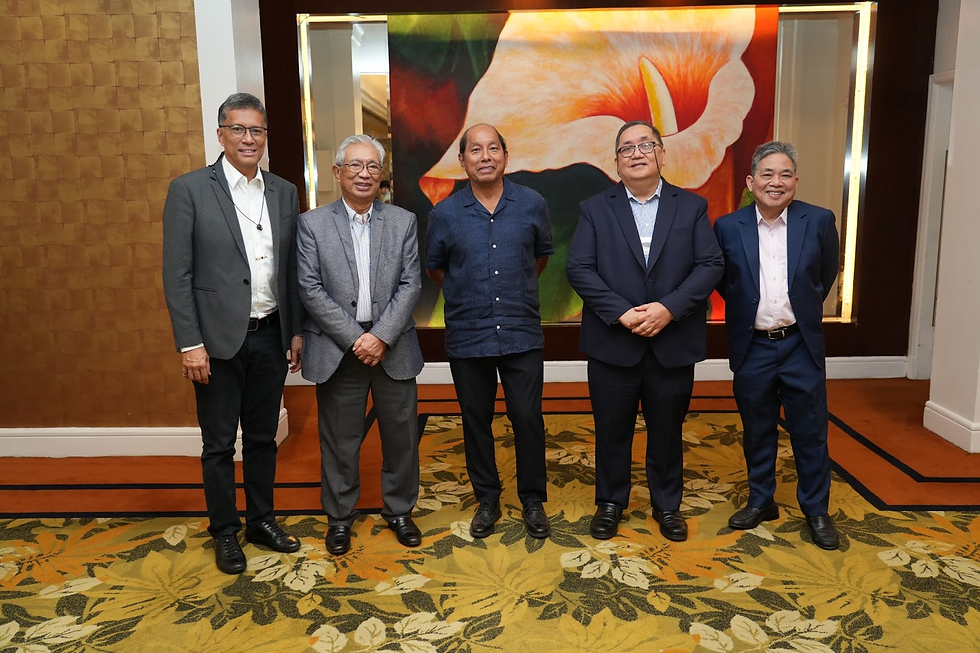THINK TANK ON DECLINING FARMGATE PRICES
- Action for Economic Reforms
- Oct 27, 2021
- 3 min read
The House Committee on Agriculture and Food convened Tuesday afternoon to conduct a Technical Working Group meeting on the issue of declining farm gate prices of rice. Quite a number of sectors attribute this decline to Republic Act No. 11203 or the Rice Tariffication Law (RTL).
In a position paper submitted to the Committee, policy advocacy group Action for Economic Reforms (AER) stressed that the Rice Tariffication Law is just the first step towards improving rice production and efficiency.
“The Rice Tariffication Law is not a silver bullet. It is a disruptive yet transformative reform but it is not a ‘be-all, end-all” solution to the age-old problems that beset the rice sector. Even before RTL, the rice sector and agriculture as a whole were already experiencing problems. Rising inflation attributable to food prices, particularly rice was a major problem in 2018,” said the AER.
The RTL envisioned making affordable rice accessible to the general public. It attempted to address systemic flaws and supported the local rice industry through the creation of the Rice Competitiveness Enhancement Program (RCEP), which is funded by revenues derived from importation. With annual allocations pegged at PhP10 billion, RCEP beneficiaries are assisted through the provision of seeds, farm technologies, financing, capacity building, and, amid plummeting farmgate prices, cash transfers.
AER acknowledged the rice sector’s encouraging resilience amid the global pandemic while the economy is experiencing staggering declines. It cautioned, however, that possible amendments to the law should complement RTL’s objectives, owing to the potential of RTL as a “long-term, sustainable solution.”
“There are more transparent and efficient ways to protect the rice industry. One of them is through tariffs, rather than having decades-long quantitative restrictions that have not significantly improved the sector’s competitiveness. The solution is two-pronged: lower palay’s cost of production and strengthen the ability of farmers to sell palay at good prices. We have to improve the competitiveness of domestic producers — long-term and sustainable solutions are always better than instant or band-aid solutions,” AER Researcher Patrick Acupan argued.
The House Committee on Agriculture’s Technical Working Group agreed that the lack of drying equipment and facilities forces farmers to sell palay of varying quality. As a consequence, farmers do not have much bargaining power when negotiating prices with traders.
“Implementation of such reforms must continuously be data-driven. We cannot emphasize enough the role of data in this context. The RTL also lacks a reliable forecast that farmers could rely on in predicting the seasonal trends in farm gate prices and import arrivals,” Acupan explained.
AER further recommended that the government provide direct cash transfers to farmers, and enhance the timeliness, targeting, scope, and effectiveness of the RCEP, which has the potential to inject direct support to the rice sector. The RCEP implementation has been marred with late or missed delivery of seeds; slow roll-out of mechanization; insufficient access to financing through favorable loans and aid; delayed initial roll-out and inconsistent targeting due to gaps in the RSBSA; and high costs of fertilizers which are unsubsidized under RCEF.
In closing, AER urged the Committee to look outside the RTL. It called on Congress to take a second look at the teeth of the Philippine Competition Commission in going after marketing cartels, an amendment of the NFA Charter to fine-tune its role given the new policy environment, and putting the National Irrigation Administration directly under DA rather than the Office of the President.
“It [RTL] is a policy doomed to fail when policymakers turn a blind eye on the binding constraints that the RTL does not inherently address. For this, other complementary policies are urgently needed to complete the reform that RTL started. Hopefully, this will protect farmers from welfare losses while securing welfare gains for our consumers,” Acupan ended. The Rice Tariffication Law is approaching the third year of its enactment into law. The Law provides for a mandatory review by the Congressional Oversight Committee on Agriculture and Fisheries Modernization (COCAFM) in its third year in effect.



